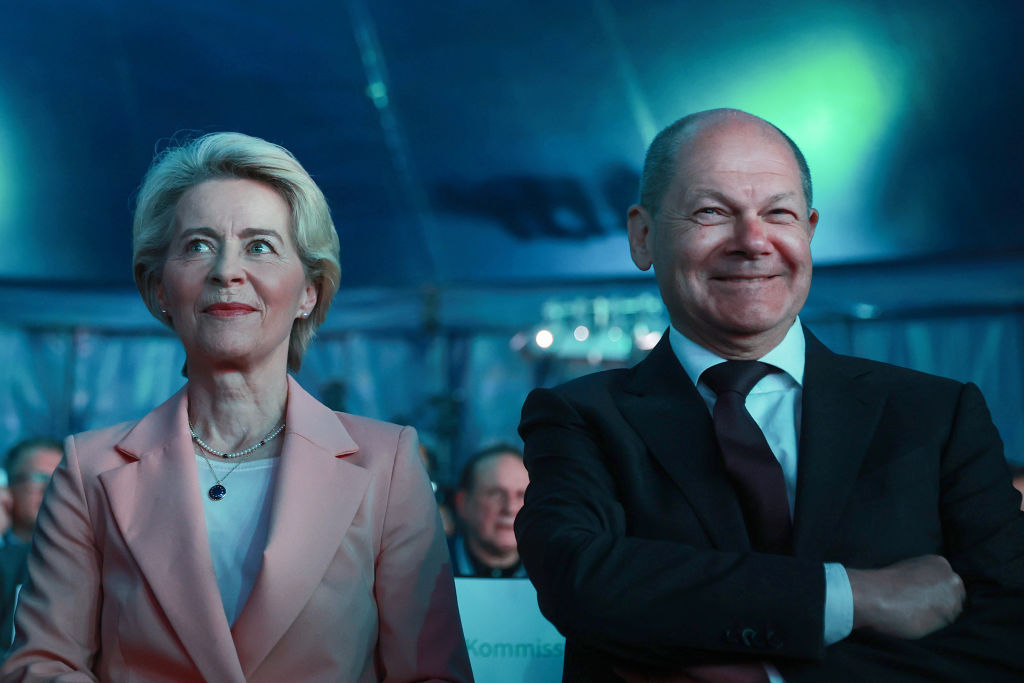Strong evidence is mounting that 2024 will be a lost year for the German economy. As reported this week, it is due to contract for the second year in a row, likely the only G7 economy to do so. Except for maybe the most stubborn environmentalists, such as economy minister Robert Habeck, no serious person is denying that the energy transition has failed. As one Bloomberg headline two weeks ago put it: “Germany Is Giving Up Hope of Achieving Any Growth in 2024.” The claims of the current government that its policies would lead to an economic miracle have met with the grim reality of an economic nightmare. Germany is, in fact, deindustrialising via decarbonisation.
Despite all the negative news coming out of Berlin, Germany is still the largest economy in the EU and the continent’s most important industrial zone. Industrial production is more than that of Italy and France combined, and the Germans are the most generous contributors to the shared funds of the EU. Additionally, Germany is the most important trading partner of almost all Central and Eastern European countries, the region furthest behind economically.
Sometimes, it appears as if countries like Poland could become the new powerhouse of Europe, but a closer look at the numbers reveals that Warsaw is nowhere near replacing Berlin economically. Germany’s GDP is more than four times larger (€4 trillion vs. €700 billion), and Poland is still a net receiver of EU funds while Germany is a net contributor.
Claims of replacing Germany also ignore the interwovenness of the German and Polish economies: if the former falls into a prolonged recession, the latter will lose its most important trading partner. It is equally unlikely that France or Italy can step up, for they also depend on the German financial backbone of the EU. If Berlin is no longer perceived as a formidable and stable central pillar of the EU, markets will most likely begin to treat all EU member states differently, for the silent expectation has always been that the Germans would bail out their fellow Europeans if necessary. As Germany’s ability to do this diminishes, so too will trust in the EU as a whole.
But Germany’s success is a hangover from the past, and it is diminishing quickly. After Ireland, the country has the lowest public investment ratio as a share of GDP — which explains the crumbling infrastructure. What’s more, the much-vaunted German Tüchtigkeit (industriousness) is becoming more a nostalgic myth than reality. The average annual hours worked are fewer than in supposedly “lazy” Southern European countries such as Italy or Greece, and still Berlin pushes for a four-day working week. Add to this Germany’s sky-high energy prices and record labour costs — all of which is toxic for its businesses and industry. Productivity has been stagnating since 2007, and is currently declining even further. The McKinsey Global Institute published a study showing that productivity growth in Germany was 1.6% between 1997 and 2007, and halved to 0.8% between 2012 and 2019.
Really, the German problem is a European problem — and the current mismanagement of the economy by Chancellor Olaf Scholz and his Vice Chancellor Habeck are increasingly becoming a problem for the viability of the EU as a whole. A weakened Germany that turns inward and becomes poorer is in nobody’s interest, and it remains a mystery why Berlin is not being called out for its failing economic policies.











Join the discussion
Join like minded readers that support our journalism by becoming a paid subscriber
To join the discussion in the comments, become a paid subscriber.
Join like minded readers that support our journalism, read unlimited articles and enjoy other subscriber-only benefits.
Subscribe